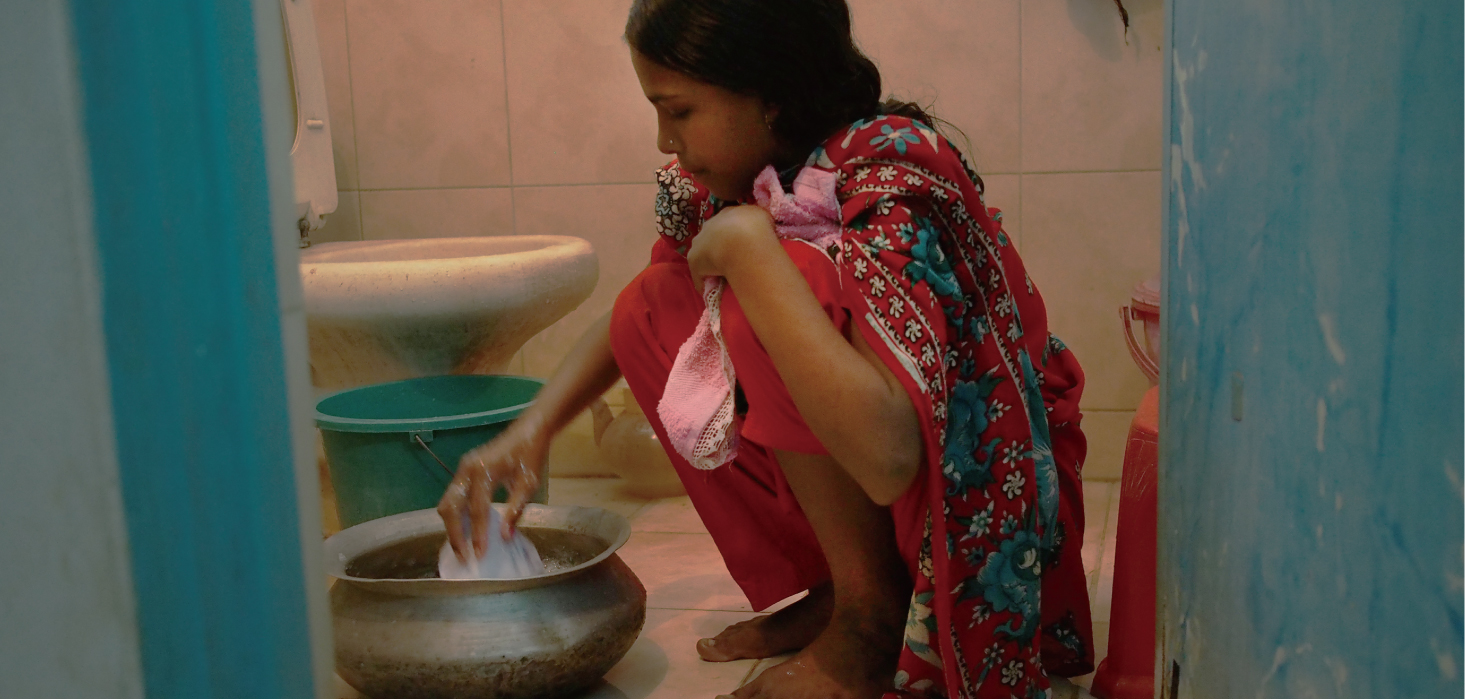
To reduce the number of child domestic workers under the age of 14 in Bangladesh society.
Project purpose:GDWs (Girl Domestic Workers) are enjoying their child rights following the “Domestic Workers Protection and Welfare Policy 2015”.
According to the International Labour Organization, among all children between age 5 and 17 in the world, 218 million are workers. 152 million of these are in the category of child labour, which involves work preventing them from participation in compulsory education or hazardous work prohibited by law. Bangladesh is one of the countries where child labour can be seen in many places, the number reaching up to 3.2 million.
Girls in child labour are often described as “invisible” labour,since they are often working within the home or for the hidden sex industry, it is difficult to determine an accurate number or grasp their actual situations. According to the Bangladesh Bureau of Statistics (BBS) and the International Labour Organization (Child Labour Survey Bangladesh 2013, BBS and ILO), 7.1% of girls in Bangladesh between the ages of 7 and 17 are working, while the figure for boys in the same age group is 26.7%. These statistically “invisible” workers have been seen as a problem in recent years.
The domestic workers are a typical case of invisible labour. Domestic workers are defined as those who do housework in the house of an employer who is a stranger.
According to the Bangladesh Bureau of Statistics, in 2013 there were 120,000 child domestic workers (CDW) in the country, out of a total of 3.45 million working children.
90.58% of the 120,000 CDWs are girls who have been deprived of education and other child rights. These girls are either full- or part-time domestic workers. Full-time domestic workers live in their employer’s house under that employer’s exclusive control; they are deprived of their rights to education, health, play, security, protection, equal opportunity, development and participation. And most employers of girl domestic workers (GDW) are not aware of children’s rights. They are negative, and they harass GDWs verbally, physically, emotionally and sexually, a situation which must be addressed at the individual, family and community levels.
How do we achieve our mission?
GDWs are taking formal or non-formal education.
At the support centers run by the project, basic education, such as Bengali, English and basic mathematics, are taught five days a week for a couple of hours in the afternoon, around the time domestic tasks are over. Besides basic education, GDWs can learn about health and hygiene, sex education and other knowledge essential to girls’ daily life. There is also some recreational time for games, singing, drawing, storytelling, and dancing.
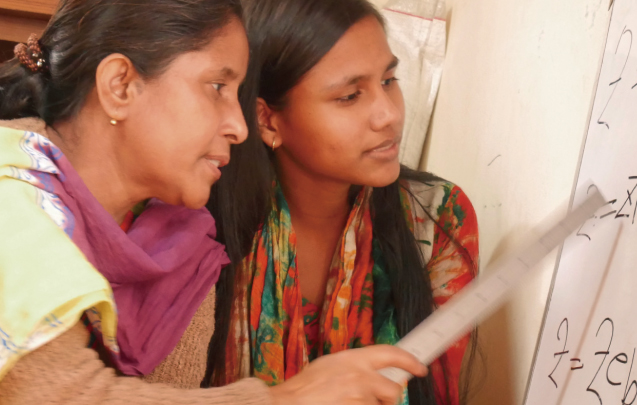
GDWs become confident by getting skill trainings.
Many GDWs who go back to their village can find themselves in an even more vulnerable situation, getting married by force at a young age and becoming victims of domestic abuse. In order to give them the chance to choose their own livelihood, the support centers provide those of 14 years old and over with opportunities to learn such skills as sewing, clothes dyeing and embroidery.
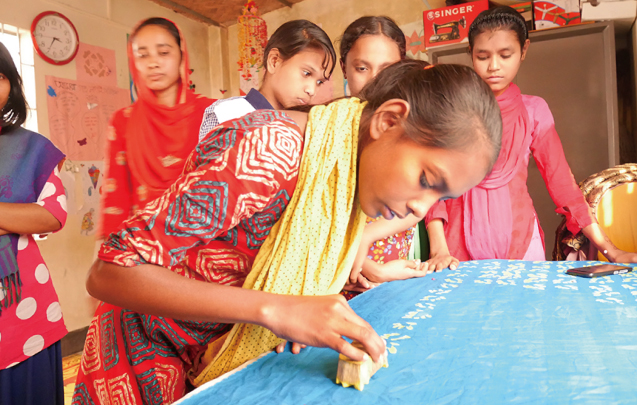
Employers have a positive attitude towards GDWs’ child rights.
Through home visits and meetings, the project aims to raise employers’ awareness about children’s rights. The project staff tells employers that girls under 14 years should go to school. As of those who employ girls who are 14 or over, they are told to work on improving GDWs’ working condition and give them the chance to receive skill trainings.
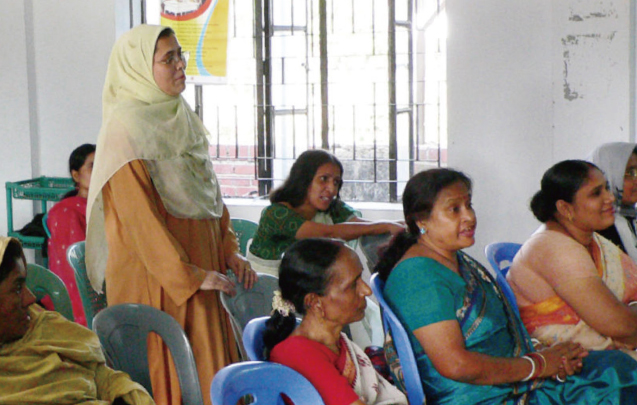
Slum Guardians are sending their children in school.
Through home visits and meetings, the project aims to raise guardians’ awareness about their children’s rights. The project staff motivates them to send their children to formal schools and to stop sending them to domestic work. The project also arranges linkage meetings with school authorities to increase the chance of GDWs getting continuous education.
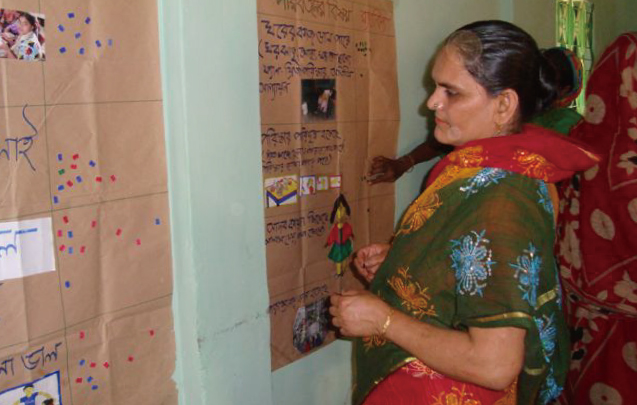
The “Domestic Worker’s Protection and Welfare policy, 2015” is practiced in the project area
At the three centers in Dhaka city, the project asks for cooperation from the neighborhood’s self-governing bodies or other residents’ organizations. By sensitizing them on GDWs’ issue, it is hoped that these stakeholders can take over the functions of the centers and continue the project’s work after its completion.
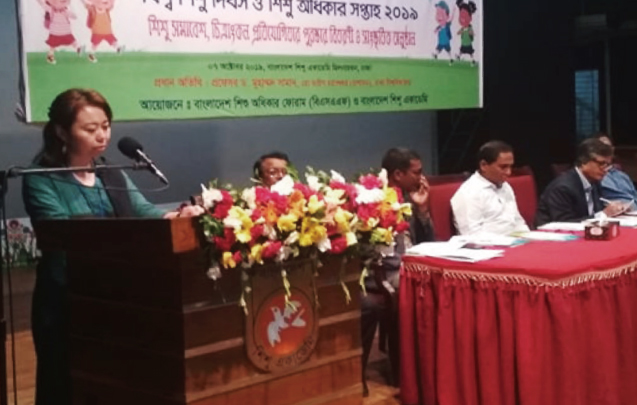
Policy makers and other relevant stakeholders are responsive to the child domestic worker’s rights.
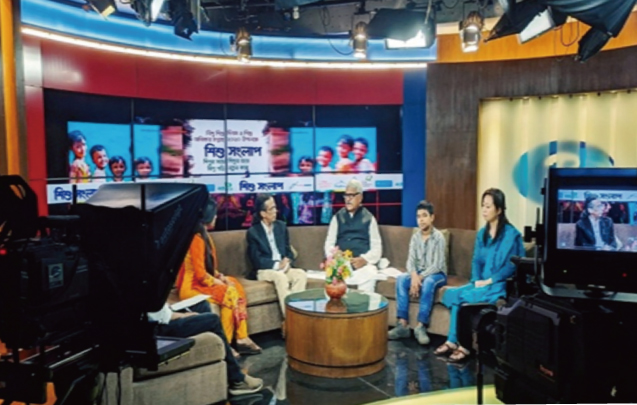
Basic Information
| Project site | Dhaka city, Bangladesh |
|---|---|
| Project duration | April 2019 〜 March 2023 |
| Number of beneficiaries | 891 |
Our Partner Organization
| Name of the organization | Phulki |
|---|---|
| Total budget | BDT 82,116,345 (2020-2021) |
| Number of human resources | 239 (As of April 2022) |
| Summary of the organization | Phulki is a local NGO established in1991 with the aim to improve the lives of the disadvantaged people, especially women and children in Bangladesh. It has been supporting women of low income bracket by setting up factory based nurseries and community based child centers for working mothers. It is also working on early childhood support through various activities. |
